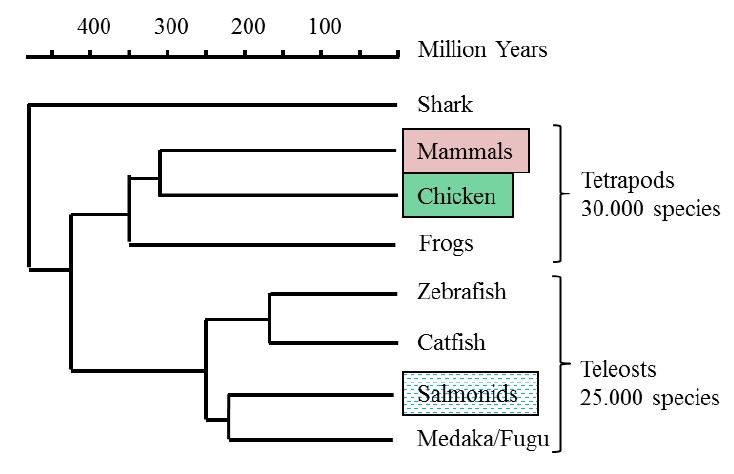Changing our view on Major histocompatibility Complex (MHC) class I in vertebrates.

Vertebrates have an immune system that recognize and fight invading pathogens. In the adaptive immune system, Major Histocompatibility Compl ex class I (MHCI) molecules are essential, as they discriminate between self and non-self, where identification of non-self, such as viral fragments, known as peptides, initiate appropriate protective responses. New data, initially identified in chicken, but later confirmed in humans, indicates that the dominant view on the ability of MHCI molecules to bind and present different peptides is overly simplistic. The new data show that MHCI molecules come in many variants, ranging from generalist to specialist; the former able to bind a large range of peptides and the latter only a limited number. Most likely, the generalist and the specialist alleles have evolved to protect against a wide variety of pathogens as shown in the case of the virally induced Mareks disease in chicken and in the progression of HIV to AIDS in humans.
ex class I (MHCI) molecules are essential, as they discriminate between self and non-self, where identification of non-self, such as viral fragments, known as peptides, initiate appropriate protective responses. New data, initially identified in chicken, but later confirmed in humans, indicates that the dominant view on the ability of MHCI molecules to bind and present different peptides is overly simplistic. The new data show that MHCI molecules come in many variants, ranging from generalist to specialist; the former able to bind a large range of peptides and the latter only a limited number. Most likely, the generalist and the specialist alleles have evolved to protect against a wide variety of pathogens as shown in the case of the virally induced Mareks disease in chicken and in the progression of HIV to AIDS in humans.
The NewMHCI project intends to test if this principle is also valid in a distantly related vertebrate, the Atlantic salmon. Atlantic salmon meets the requirements for testing such a hypothesis with a single expressed and highly polymorphic MHC Ia gene and known links between MHCI alleles and resistance against a viral salmon pathogen (Infectious salmon anaemia virus) and a bacterial pathogen (Aeromonas salmonicida). We will identify the bound peptides and surface expression levels of alleles previously linked to either resistance or susceptibility towards these pathogens. Assuming we find evidence supporting the hypothesis that generalists or specialists MHC.